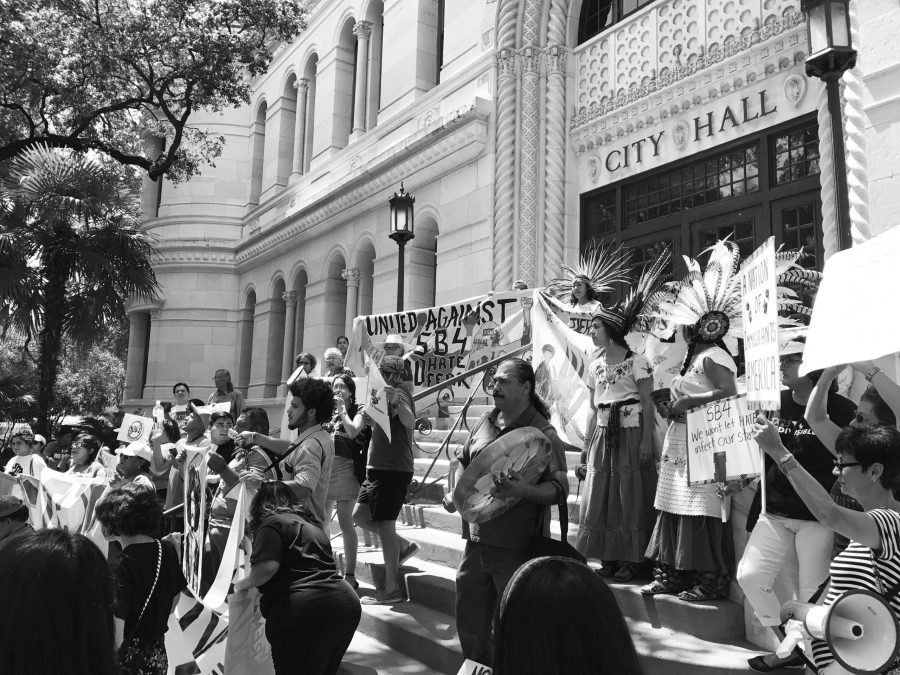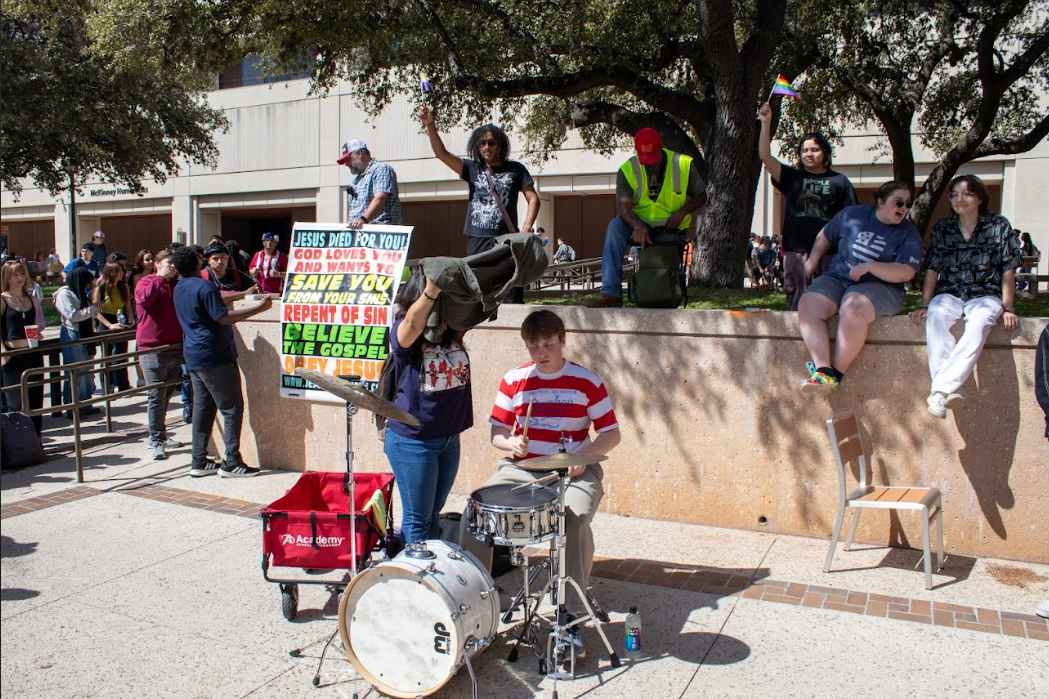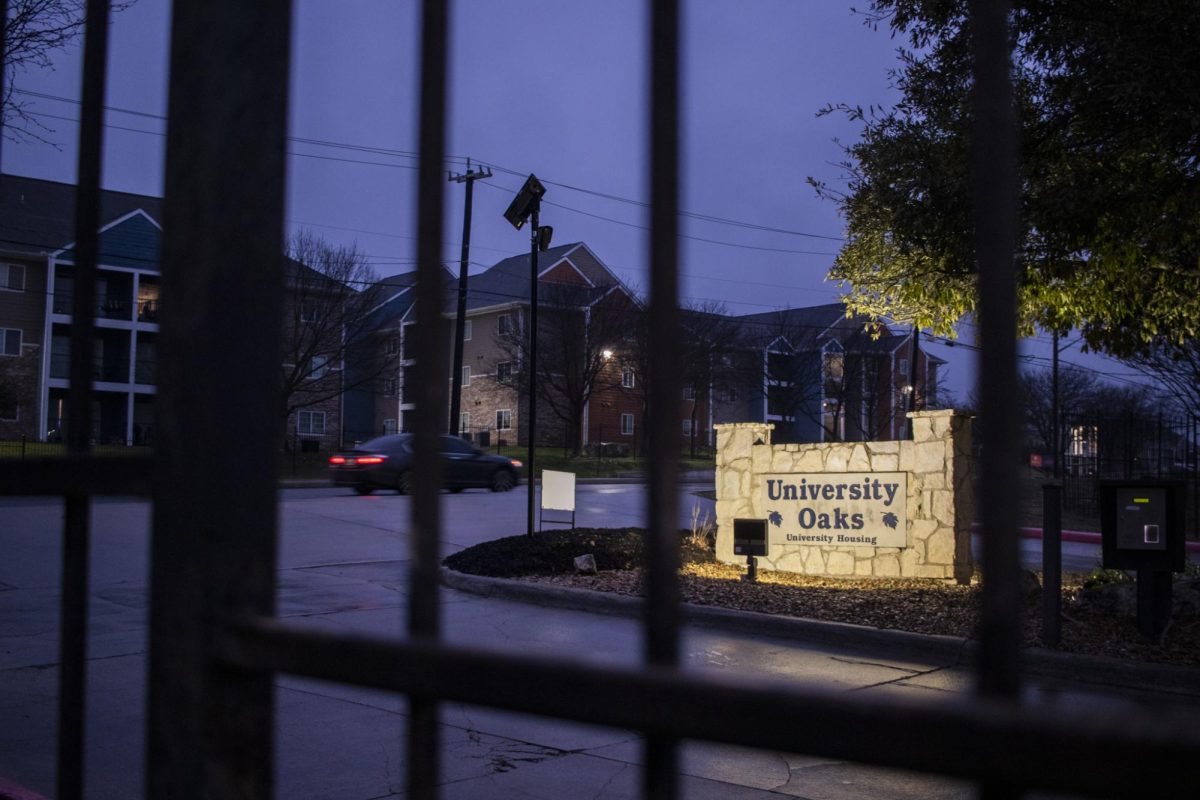A coalition of immigrant rights and political groups gathered at Milam Park Sept. 4 where they began a march in protest of Texas Senate Bill Four (SB4). The bill, which was temporarily halted by Chief U.S. District Judge Orlando Garcia on Aug. 30, was intended to crack down on sanctuary cities in the state of Texas. SB4 also empowered state law enforcement officers to demand proof of citizenship from people during routine interactions such as traffic stops.
The protesters, chanting and holding signs, marched through the streets of downtown San Antonio until, following a brief standoff with SAPD, they were forced onto the sidewalks, upon which they continued towards City Hall.
To begin the march, participants gathered around an open space in the park where a group of people in traditional indigenous clothing performed a ceremony intended to place a blessing on the march. When the ceremony had finished, everyone gathered got into formation and set off into the heart of downtown.
Along the way to City Hall, the march paused in front of the San Antonio office of Senator John Cornyn, where spokespeople gave speeches on immigrant rights and lead chants directed at the senator. The march ended in a gathering at City Hall, where organizers from the Refugee and Immigrant Center for Education and Legal Services (RAICES) and The Texas Organizing Project, a group that aims to redress socioeconomic inequality by organizing communities for political action, spoke to the crowd of protesters and to news cameras that had been set up in anticipation of the event.
Other groups that participated in the march and who were credited for organizing the march were Unite Here, Mi Familia Vota and MOVE San Antonio. MOVE specifically is notable for its many members who are also university students. MOVE member and UTSA senior Sean Rivera is a prominent local organizer who was present at the march.
“This is the perfect city to do activism in. It has a really wide, really progressive base that’s just waiting to get started. There’s a lot of urgency for intersectional activism. I’ve definitely branched out into a lot of activism,” Rivera said at the march.









